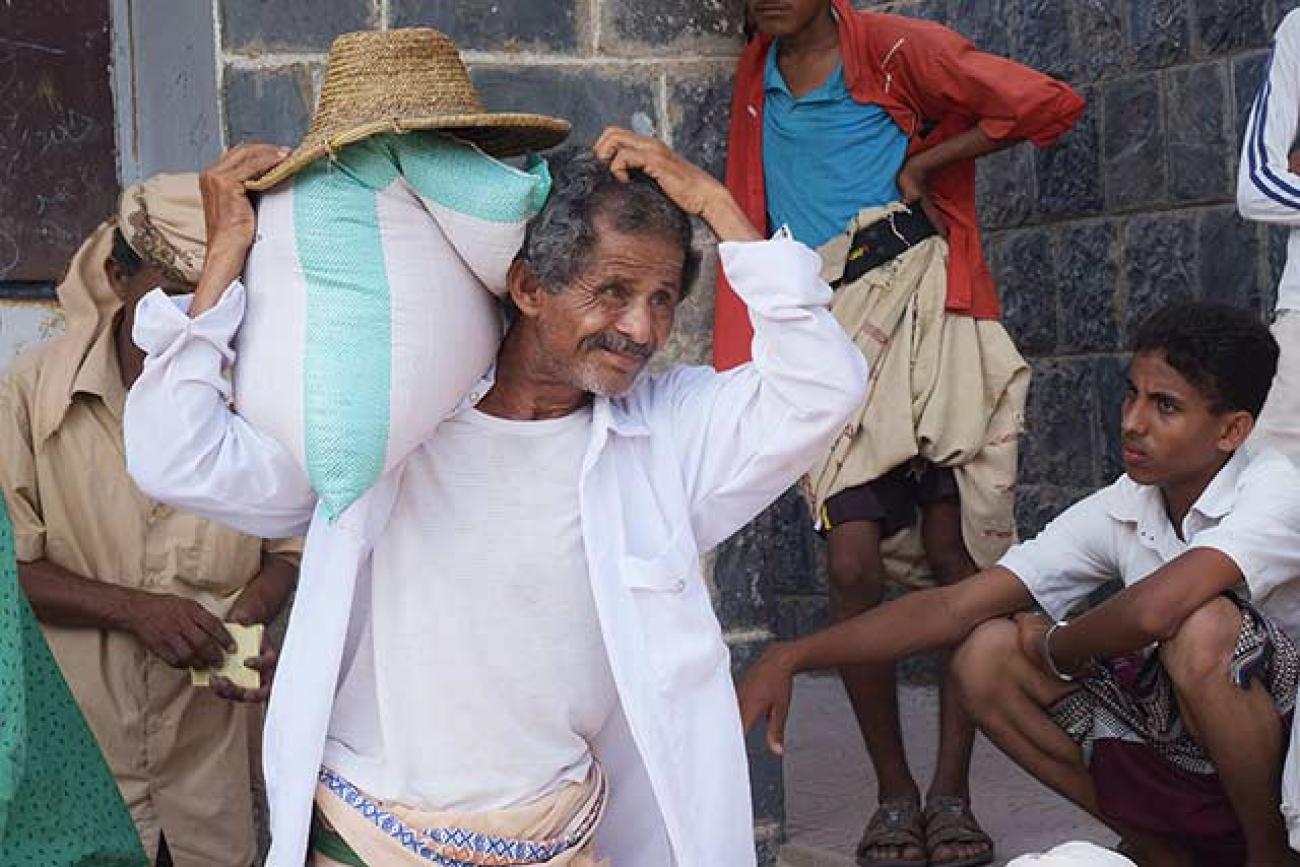Farmers in conflict-ridden Yemen have begun receiving seeds thanks to the joint efforts of the Government of Japan, Yemen’s Ministry of Agriculture and Irrigation and the Food and Agriculture Organization of the United Nations (FAO). The seeds will assist the most vulnerable families in getting a head-start on the current agricultural season.
The seed distribution exercise is part of a larger effort from Japan to back FAO’s work on enhancing food and nutrition security for the most vulnerable households in Yemen. The current seed distributions will see 9 750 vulnerable families in five governorates in Yemen (Al-Dhale’e, Damar, Taiz, Abyan and Raymah) receive a kit containing beans, millet and sorghum seeds.
“In addition to growing food, the targeted families will also be able to produce their own seeds for future agricultural seasons. This will boost their self-reliance in a country where impacts of conflicts have been ruinous for both lives and livelihoods”, said Hussein Gadain, FAO Country Representative to Yemen.
Millet and sorghum price rise sharply
In the June 2019 Market Monitoring Bulletin, the market price for millet and sorghum increased by 37 and 23 percent respectively compared to the same time last year. This sharp increase in prices of staples makes it far too expensive for the communities to afford. By providing seeds to communities, this project aims to cushion the most vulnerable from the vagaries of inflation that has pushed the cost of the food basket beyond their reach.
Under the two-year project, FAO will also focus on strengthening the community animal health system and animal production systems. Provision of animal feed and activities such as vaccination campaigns will ensure that dairy products are available to the most vulnerable members of the poor families - especially children, pregnant women and lactating mothers.
“This Japanese funding will also enable FAO to improve food production practices and strengthen communities’ ability to manage land, soil and water resources sustainably. Introduction of localized irrigation systems and rehabilitation works for the agricultural terrace in mountainous areas, will bolster the communities’ livelihoods, agricultural productivity, food security and nutrition”, said Walid Saleh, the project’s Chief Technical Advisor.
Distribution of agricultural inputs crucial
The recent quarterly Early Warning, Early Action report, notes that 15.9 million people in Yemen were suffering from acute food insecurity in 2018. This is the most of any other country globally. If it were not for humanitarian assistance through projects like this, the situation would be much worse. Among its recommendations is the provision of agricultural inputs to vulnerable severely food insecure farmers, to take advantage of the ongoing agricultural season and increase crop production.
By prioritizing livelihood programmes that increase food and livestock production as well as diversify income sources, this FAO-Japan partnership is equipping Yemeni families with the tools they need to earn a living even in the face of the conflict-induced crisis.
Food insecurity continues to rise four years into the conflict in the country. FAO has developed an Emergency Livelihoods Response Plan (ELRP) for Yemen. The plan aims to reduce acute food insecurity and save the lives of 7 million vulnerable people in 2019.


